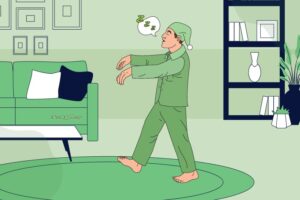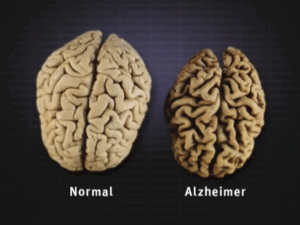The division between early birds and night owls
There has always been a cultural obsession with waking up early. It’s part of “the grind,” encompassing athletes, CEOs, and celebrities: Ashton Hall boasts about his morning routine of waking up at 4:02 a.m., and Mark Wahlberg wakes up at 2:30 a.m. to exercise, golf, and pray (1). Many obsess over how early they can wake up and how it has improved their lives after making the change. Does waking up early actually guarantee success, health, or productivity?
People have different chronotypes, which are their body’s natural sleep and wake preferences (2). The three broad chronotype categories are early birds, night owls, and people who are neither. Some people are most alert in the morning, others in the evening, and many fall somewhere in between. Chronotype can change depending on one’s age, hormones, genetics, and light exposure. Most children have earlier chronotypes, meaning they are more alert in the morning and tend to go to sleep earlier; as they age through adolescence, their chronotypes move later and eventually shift earlier in adulthood (2). Waking up early when you feel most alert later in the day may be hurting your day-to-day performance, as it doesn’t align with your chronotype (1). It can cause “social jet lag,” potentially resulting in sleep debt, reduced focus, poor performance at school or work, anxiety, and relationship complications (3). Though early rising can be effective for some, for others it can do more harm than good.
The idea that early birds do better than night owls is rooted in research. Many studies have found that those who go to bed early and wake up early are happier, more punctual, and do better in school (1). On the other hand, night owls are more impulsive, angry, and even more likely to become cyberbullies. On the surface, it seems like early birds clearly are better than night owls in many ways. But social obligations like school, work, and even religious practices typically begin early in the day, conflicting with the sleep-wake cycles of night owls (3). These practices have always favored early risers, rewarding their habits and punishing night owls.
Ultimately, is waking up early actually effective? Waking up early can create beneficial personal time, help establish consistent routines, improve mental health, and align with social demands like school or work; however, it is not a universal formula for productivity and happiness. What matters the most is whether your biological chronotype lines up with your sleep and wake times consistently. If you are an early person, waking up early might be something to try. But if you find yourself waking up later and being more productive at night, Gail Kinman, a professor of occupational health psychology at the University of Bedfordshire, advises against it. She says, “Don’t do it, unless you are a true morning person” (1). What’s most important is getting adequate amounts of sleep (seven hours or more, depending on age), no matter when you wake up.
Works Cited:
- Lufkin, B. (2019, February 13). Is waking up early good or bad?, BBC. https://www.bbc.com/worklife/article/20190213-is-waking-up-early-good-or-bad
- (2025, August 6). Early bird or night owl? How your chronotype affects your wellness, UCLA Health. https://www.uclahealth.org/news/article/early-bird-or-night-owl-how-your-chronotype-affects-your
- Hamzeh, Y. (2025, July 22). The Benefits of Waking Up Early, Sleep Foundation. https://www.sleepfoundation.org/sleep-hygiene/benefits-of-waking-up-early
- Weiss, H. (2023, May 25). Why Waking Up Earlier Isn’t Necessarily Better, Time. https://time.com/6282822/better-to-be-morning-person/






Comments are closed.